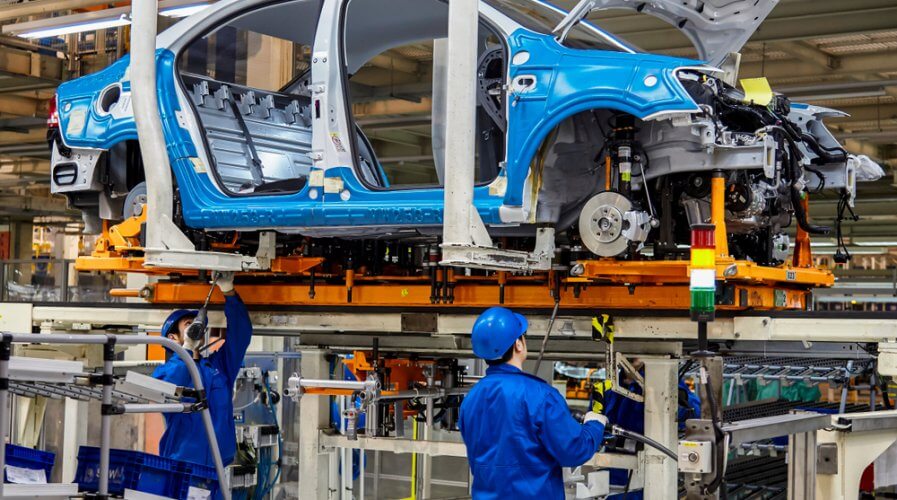
McKinsey believes AI in production is a boon for manufacuturers with heavy assets. Source: Shutterstock
Why McKinsey thinks AI is a game-changer for manufacturers
WHEN manufacturers think of artificial intelligence (AI), they think of its ability to produce insights from data.
Most manufacturers are keen on using AI to analyze demand and factor in lags in the supply chain to optimize operations, but forget the heavy equipment they’re using.
According to a new whitepaper, McKinsey argues that companies with heavy assets can reap great dividends if their operators start using AI to review their workflows and make necessary alterations.
“AI can deliver improvements without capital-intensive equipment upgrades and thus produce attractive returns quickly,” it says.
The consulting giant finds that despite the advances in technology, operators of heavy machinery still rely on judgment and intuition to manually monitor signals and adjust settings, troubleshoot and run tests, and perform other tasks that strain the limits of their human capacity.
“Since variations in operators’ qualifications can affect not only performance but also profits, AI’s ability to preserve, improve, and standardize knowledge is all the more important,” explains the report.
“Moreover, since it can make complex operational set-point decisions on its own, AI is able to reliably deliver predictable and consistent output in markets that have difficulty attracting and retaining operator talent.”
McKinsey’s team is fully convinced that AI can dynamically transform the role of those that operate heavy equipment at manufacturing facilities.
With respect to operational improvement and dynamic adaptability, the team believes AI can outperform conventional decision-support technologies.
The idea is neither new or novel but can be quite affordable for companies to test given how easy it is to access new-age high-performance software tools, processing power, and memory.
Further, AI can fully automate complex tasks and provide consistent and precise optimum set points in autopilot mode.
McKinsey also highlights that AI requires less manpower to maintain, and—equally important—it can be adjusted quickly when management revises manufacturing strategy and production plans.
The whitepaper discusses a previous engagement with a cement company where hardware upgrades produced an eight percent fee-rate gain and installing an advanced process-control solution brought an incremental two percent gain.
When the client wanted to make further improvements, McKinsey brought in some data scientists and digital and analytics consultants to create an AI-based asset optimizer solution using free, in-house process data, a structured proprietary methodology, and some help from a technology partner.
Eight months on, the AI asset optimizer was able to deliver 11.6 percent improvement versus operations in manual mode.
“Asset-optimizer solutions have been developed and successfully deployed in chemicals, metals, mining, and other heavy-manufacturing environments, demonstrating that AI solutions are viable and economically attractive to a range of companies with heavy assets.”
The solution is something manufacturers can really use right now, especially at a time when they’re trying to climb the digital maturity curve but don’t have too much to spare in terms of resources or need something quick to help them.
“As ongoing experience and new deployments increase, we predict AI optimizers will develop and operate even faster and become prevalent in an ever-larger number of plants—and more and more companies will seek to develop their own systems to meet their unique needs,” explained McKinsey’s whitepaper.
READ MORE
- Ethical AI: The renewed importance of safeguarding data and customer privacy in Generative AI applications
- How Japan balances AI-driven opportunities with cybersecurity needs
- Deploying SASE: Benchmarking your approach
- Insurance everywhere all at once: the digital transformation of the APAC insurance industry
- Google parent Alphabet eyes HubSpot: A potential acquisition shaping the future of CRM






